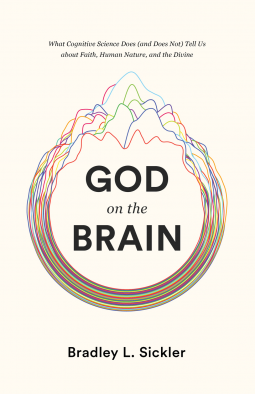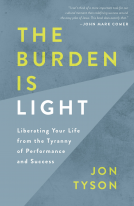
God on the Brain
What Cognitive Science Does (and Does Not) Tell Us about Faith, Human Nature, and the Divine
by
This title was previously available on NetGalley and is now archived.
Send NetGalley books directly to your Kindle or Kindle app
1
To read on a Kindle or Kindle app, please add kindle@netgalley.com as an approved email address to receive files in your Amazon account. Click here for step-by-step instructions.
2
Also find your Kindle email address within your Amazon account, and enter it here.
Pub Date Jul 21 2020 | Archive Date Jul 05 2020
Talking about this book? Use #GodontheBrain #NetGalley. More hashtag tips!
Description
Bradley Sickler provides a timely theological, scientific, and philosophical assessment of the human brain, displaying the many ways in which the gospel informs a distinctly Christian understanding of cognitive science.
A Note From the Publisher
PDF may not be compatible with all reading devices
Advance Praise
“A number of philosophers and scientists argue that humans are nothing more than their physical bodies, yet God on the Brain shows why this view lacks grounding. Compelling, eloquent, and accessible, this book upholds the case for a traditional view of humans as both physical and spiritual. I highly recommend Sickler’s volume to all who are interested in the intersection of neuroscience and philosophy with the Christian faith.”
—Sharon Dirckx, Senior Tutor, Oxford Centre for Christian Apologetics; author, Am I Just My Brain?
“In a world where our very humanity is called into question and redefined, Brad Sickler offers truth and hope in a well-reasoned manner. God on the Brain takes the Bible and religious experience seriously and views science as a partner rather than an adversary. Sickler offers a theologically reliable way forward through the dangers of materialism, naturalism, and many other ‘-isms’ that try to steer us away from living a fully Christian life. If the church takes Sickler’s work seriously, we will be extremely well prepared to love God with our entire being in a much deeper and more profound way. Highly recommended!”
—J. Scott Duvall, J. C. and Mae Fuller Chair of Biblical Studies and Professor of New Testament, Ouachita Baptist University
“Brad Sickler covers a lot of ground in this short yet punchy book. He writes wonderfully and elegantly distills complex discussions. Readers coming at these questions for the first time will find his insights richly illuminating and their minds stretched in helpful ways. This book is a delight to read. You’ll end up more informed, a good deal wiser, and ever more confident in the biblical story!”
—Hans Madueme, Associate Professor of Theological Studies, Covenant College
“This is a really great book! Brad Sickler is able to explain complex ideas in a readable, enjoyable style. Pulling from several academic disciplines, this book is full of new, refreshing, and insightful ideas. Sickler’s treatment of the relationship between science and religion is alone worth the price of the book. I highly recommend this treasure of learning.”
—J. P. Moreland, Distinguished Professor of Philosophy, Talbot School of Theology, Biola University
Available Editions
| EDITION | Other Format |
| ISBN | 9781433564437 |
| PRICE | $19.99 (USD) |
Links
Featured Reviews
 Daniel F, Educator
Daniel F, Educator
I enjoyed this book, but it was not what I expected. Given the title, I expected the book to be most applicable for a counselor seeking to better understand cognitive behaviors in light of Scripture. However, this book seemed more fitting for someone interested in the relation between Christianity and science. It wasn't until about halfway through the book that the brain was directly addressed, before that, it was the relationship of Christianity to science.
I appreciated how clear the book was, especially because the chapters had helpful sections and headings to give the reader an understanding of where they are at in the argument.
I would recommend this book to someone working in a scientific industry, or maybe even medical. Or to a student in college studying someone technical like physics. I wouldn't recommend it to a counselor.
 David S, Reviewer
David S, Reviewer
I found this book to be a very interesting read regarding cognitive science and Christianity. The author defends a dualistic view regarding the body and soul. I would note, however, that it appears that he uses soul and mind interchangeably without a clear definition of either. When he discussed the Hebrew word nephish in Genesis 2: 7, 19 he does mention that the word is used of humans and animals, but I believe he misses the The translation that says, "Then the Lord God formed man of dust from the ground, and breathed into his nostrils the breath of life; and man became a living being (nephish). Genesis 2:7 (NASB95). Genesis 2:19 states: "Out of the ground the Lord God formed every beast of the field and every bird of the sky, and brought them to the man to see what he would call them; and whatever the man called a living (nephish) creature, that was its name." Genesis 2:19 (NASB95). It is important to note that the text does not say that God bestowed upon humankind an "immaterial soul.
Those two points aside the book is very informative the places where cognitive science and Christianiy intersect (in agreement) and where they collide (in disagreement). He rightfully points out that a naturalistic viewpoint does not give our cognitive faculties any reliability. He writes, "No rational process or way of knowing will be safe if we are cut off in principle from knowing things that cannot be proved through sensory perception." He goes on to write, "It assumes that what we judge as solid reasoning really is solid, but it leaves us no resources for judging the weak from the strong."
He also includes C.S. Lewis's argument,
"Supposing there was no intelligence behind the universe, no creative mind. In that case, nobody designed my brain for the purpose of thinking. It is merely that when the atoms inside my skull happen, for physical or chemical reasons, to arrange themselves in a certain way, this gives me, as a by-product, the sensation I call thought . But, if so, how can I trust my own thinking to be true? It’s like upsetting a milk jug and hoping that the way it splashes itself will give you a map of London. But if I can’t trust my own thinking, of course I can’t trust the arguments leading to Atheism, and therefore have no reason to be an Atheist, or anything else. Unless I believe in God, I cannot believe in thought: so I can never use thought to disbelieve in God."
He also points out that the naturalistic worldview cannot ground morality, or provide any framework for making moral truth objective.
In the end he concludes that the "neuroscientific findings can be integrated in both a theistic as well as an atheistic worldview but these views are not entailed by the empirical evidence itself..
 Joan N, Reviewer
Joan N, Reviewer
This book turned out to be a little different than what I was expecting. Based on the subtitle, I was expecting a report on the latest findings of cognitive science as they relate to my Christian faith. When I came to this quote, I knew the book would be something different. “At present only a small number of studies exist on the relation between neural activity and religious behavior,” Sickler says. (Loc 996/2505) The studies mostly revolve around meditating, not the accounts we read about in the Bible where people encounter God. There seem to be no definitive results, Sickler says, as there are a variety of ways spiritual practices can affect various processes in the brain. (Loc 1026/2505)
The book really isn't about cognitive science as much as it is about science in general and how it philosophically relates to faith. Sickler explores what scientists says about the existence of the soul, the non-material aspect of humans, and argues for its existence. He explores truth and whether science is the only way to know truth. He explores the nature of materialism, the arguments from evolution, and the nature of knowledge. He also has a good exploration of free will.
Sickler argues that humans are meant to know God and be in a relationship with Him. He explores morality and concludes moral action is meaningless in the naturalistic sphere and only makes sense when we recognize God has wired us for morality.
One argument of his was new to me. Some might argue that the whole concept of God arises in the human brain and therefore God does not exist objectively. Sickler suggests that, just because the concept of God passes through the brain, it does not mean the concept originates in the brain. It is the same as an awareness of seeing a giraffe. That the awareness of the giraffe's existence is in the brain and that the awareness can even be replicated by stimulation does not mean the giraffe does not exist objectively. (Loc 1157/2505)
This is a philosophical look at what science (in general) says about the brain and belief in God. If you are looking for the findings of recent cognitive science studies in relation to faith, you may be disappointed. If you want a philosophical argument that science in no way precludes faith in God, then this is your book.
I received a complimentary egalley of this book from the publisher. My comments are an independent and honest review.
Addressing questions about the relationship between science and Christianity, this books seeks to provide a biblical understanding of human nature in the context of cognitive science. It was an interesting, challenging read.
 Nicholas V, Reviewer
Nicholas V, Reviewer
Advances are being made regularly in the field of cognitive science and our understanding of the human brain. While some theorists and atheistic philosophers try to hang on to the idea that humans are no more than our brains, others are seeing how extraordinary and complex the brain really is. And this complexity, which includes the apparent hardwiring for belief in God and for a desire to behave in positively moral ways, speaks loudly of our Creator and His relationship with the people He created.
Written by a Christian professor pf philosophy and theologician, this book demonstrates how new discoveries about the human brain are reinforcing the biblical view of how humans relate to God, and the inherent worth of humanity because of God's apparent intention to create our brains so that we can communicate with Him directly - and He with us.
A very informative and thought-provoking book, and highly recommended for Christians and others with an interest in the implications of the cutting-edge discoveries of the neurosciences.

















